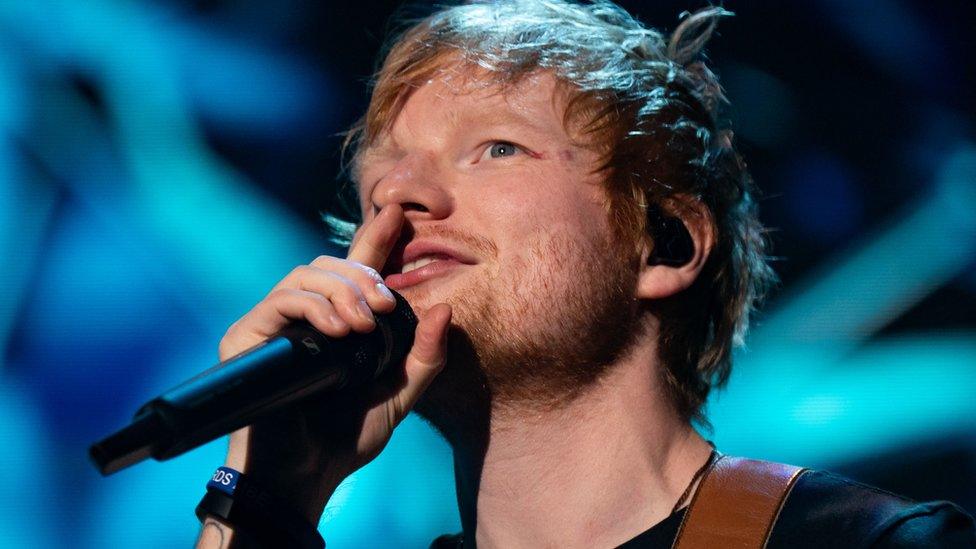Ed Sheeran wins Thinking Out Loud copyright case
- Published
Ed Sheeran: I won't have to retire from my day job after all
Ed Sheeran did not copy Marvin Gaye's Let's Get It On when composing Thinking Out Loud, a US court has ruled.
The British singer-songwriter had denied stealing elements of the song for his 2014 worldwide hit.
Heirs of Gaye's co-writer argued that Sheeran, Warner Music Group and Sony Music Publishing owed them money for copyright infringement.
Sheeran had said he would give up his music career if found guilty at the trial in New York.
"If that happens, I'm done, I'm stopping," he said when asked about the toll the trial at Manhattan federal court was taking on him.
Sheeran stood up and hugged his team after jurors ruled that he "independently" created his song.
Speaking outside court, Sheeran said he was "obviously very happy" with the ruling.
"It looks like I'm not going to have to retire from my day job after all," he said. "But at the same time I am absolutely frustrated that baseless claims like this are allowed to go to court at all.
"If the jury had decided this matter the other way we might as well say goodbye to the creative freedom of songwriters."
"I am not and will never allow myself to be a piggy bank for anyone to shake," he added.
A musicologist for Sheeran's defence told the court that the four-chord sequence in question was used in several songs before Gaye's hit came out in 1973.
Kathryn Townsend Griffin, the daughter of Gaye's co-writer Ed Townsend, accused Sheeran of copyright infringement. She walked swiftly past reporters smoking what appeared to be a cigarillo, saying only: "God is good all the time, all the time God is good."
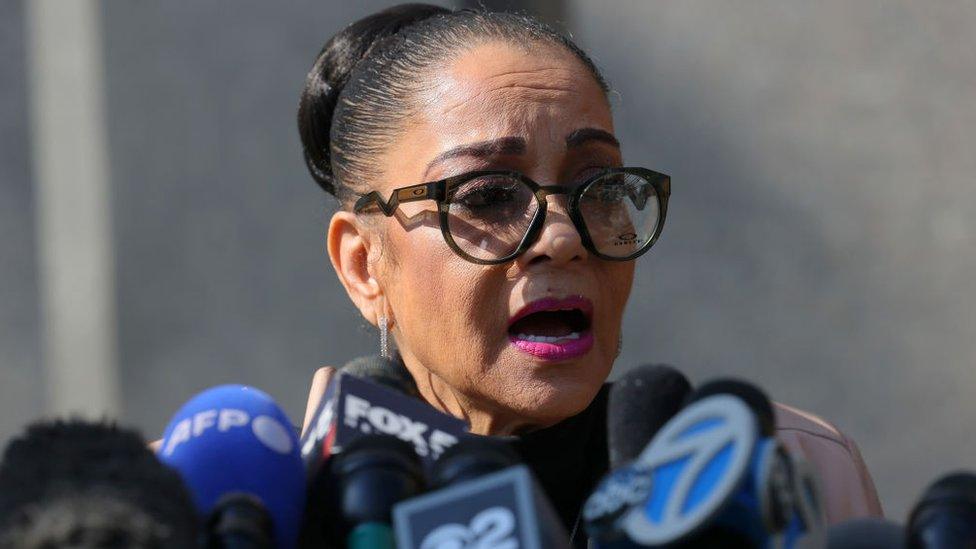
Kathryn Townsend Griffin, the daughter of composer Ed Townsend, accuses Sheeran of copyright infringement
During the civil trial Sheeran sang and played parts of Thinking Out Loud on the guitar.
He said he wrote the song at home in England with his friend Amy Wadge, and had been inspired by his grandparents and a new romantic relationship he had just begun.
Sheeran's lawyer, Ilene Farkas, told the jurors that similarities in the chord progressions and rhythms of the two songs were "the letters of the alphabet of music."
"These are basic musical building blocks that songwriters now and forever must be free to use, or all of us who love music will be poorer for it," she said.
How similar are Ed Sheeran and Marvin Gaye's songs?
During the trial, Keisha Rice, who represented the heirs of Townsend, said her clients were not claiming to own basic musical elements but rather "the way in which these common elements were uniquely combined."
"Mr Sheeran is counting on you to be very, very overwhelmed by his commercial success," she said, urging jurors to use their "common sense" to decide whether the songs are similar.
Last year Sheeran won a copyright battle at the High Court in London over his 2017 Shape of You.
Sheeran is also facing claims over Thinking Out Loud from a company owned by investment banker David Pullman that holds copyright interests in the Gaye song.
In 2015 Gaye's heirs won a $5.3m judgment from a lawsuit claiming the Robin Thicke and Pharrell Williams song Blurred Lines copied Gaye's Got to Give It Up.
Related topics
- Published28 April 2023
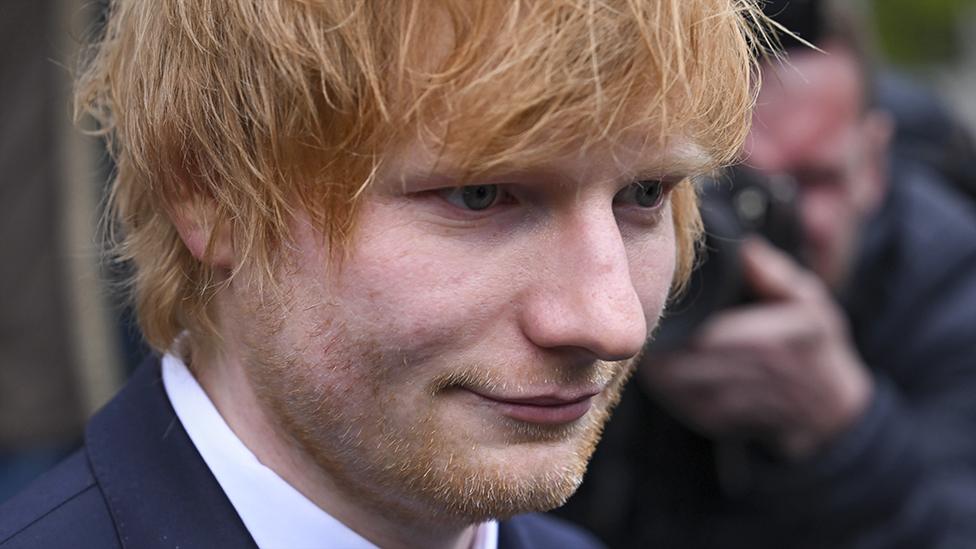
- Published26 April 2023
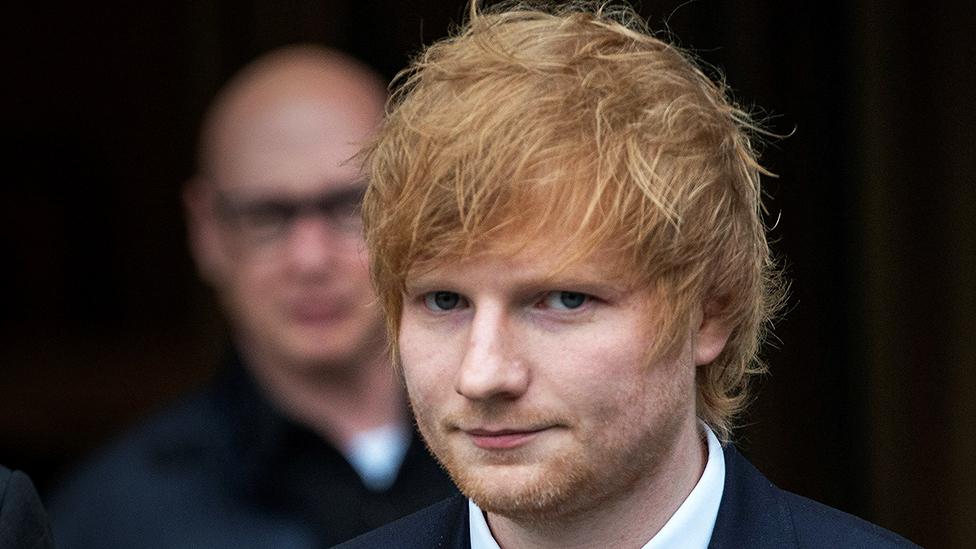
- Published30 September 2022
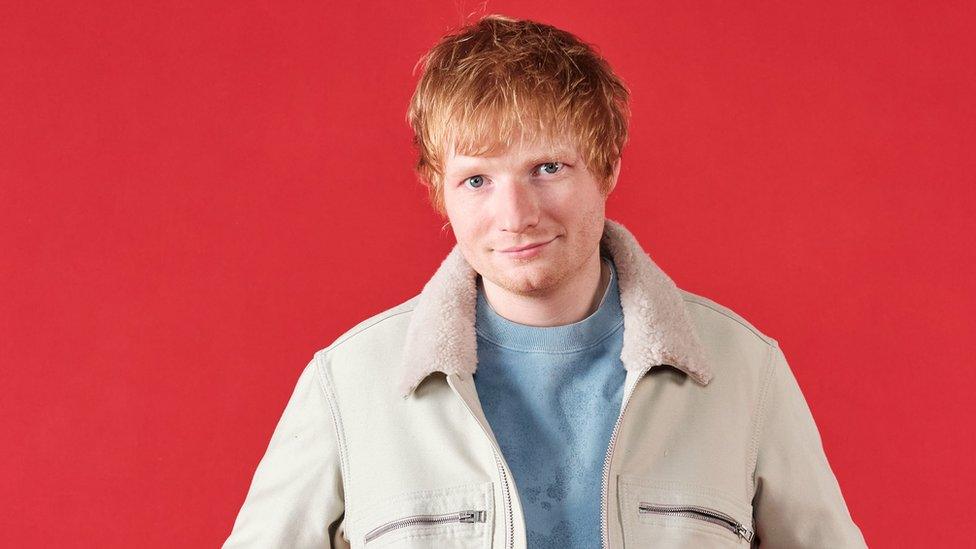
- Published6 April 2022
